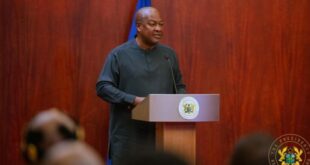
Akosua Manu, the Deputy Chief Executive of the National Youth Authority, has argued that the recent Occupy Bank of Ghana protest, which called for the resignation of the Bank of Ghana (BoG) Governor and his deputies, was misguided. According to Manu, the central bank is not responsible for growing food crops to determine food inflation, and therefore, the protest’s focus on this issue was misplaced.
During an appearance on TV3’s New Day, Akosua Manu emphasized that while holding institutions accountable is essential, it must be done within their areas of responsibility. She stated, “Some of the things that the minority talked about, if they are talking about factors that affect inflation including food, it is not BoG that plants maize or plantain to determine that, it doesn’t come to them.” She also noted that if there were concerns about the governor’s appointment, those should be addressed through the appropriate channels.
Manu went on to express her support for the government’s approach to seeking assistance from the Bank of Ghana, as she believes it falls under the bank’s responsibility. She even suggested that the Bank of Ghana could provide loans to the government in various forms.
However, Akosua Manu criticized Dr. Ernest Addisson, the governor of the Bank of Ghana, for labeling the protesters as “hooligans.” She disagreed with his choice of words, stating, “In the end, I disagree with the description of the protesters as hooligans; he performed poorly on that front. No one can make me believe that they were the right words to use.
The Occupy Bank of Ghana protest, which took place on October 3, 2023, saw participation from the Minority group in Parliament, including the National Democratic Congress (NDC), CPP, PNC, and various civil society organizations. The protesters demanded the resignation of the BoG Governor and his deputies due to a GH¢60 billion loss incurred by the central bank in the 2022 fiscal year, as well as concerns over the costly new head office project estimated at over $250 million USD. Thousands of demonstrators marched through the streets of Accra to voice their grievances.
 GhArticles.com Every News in Detail
GhArticles.com Every News in Detail



